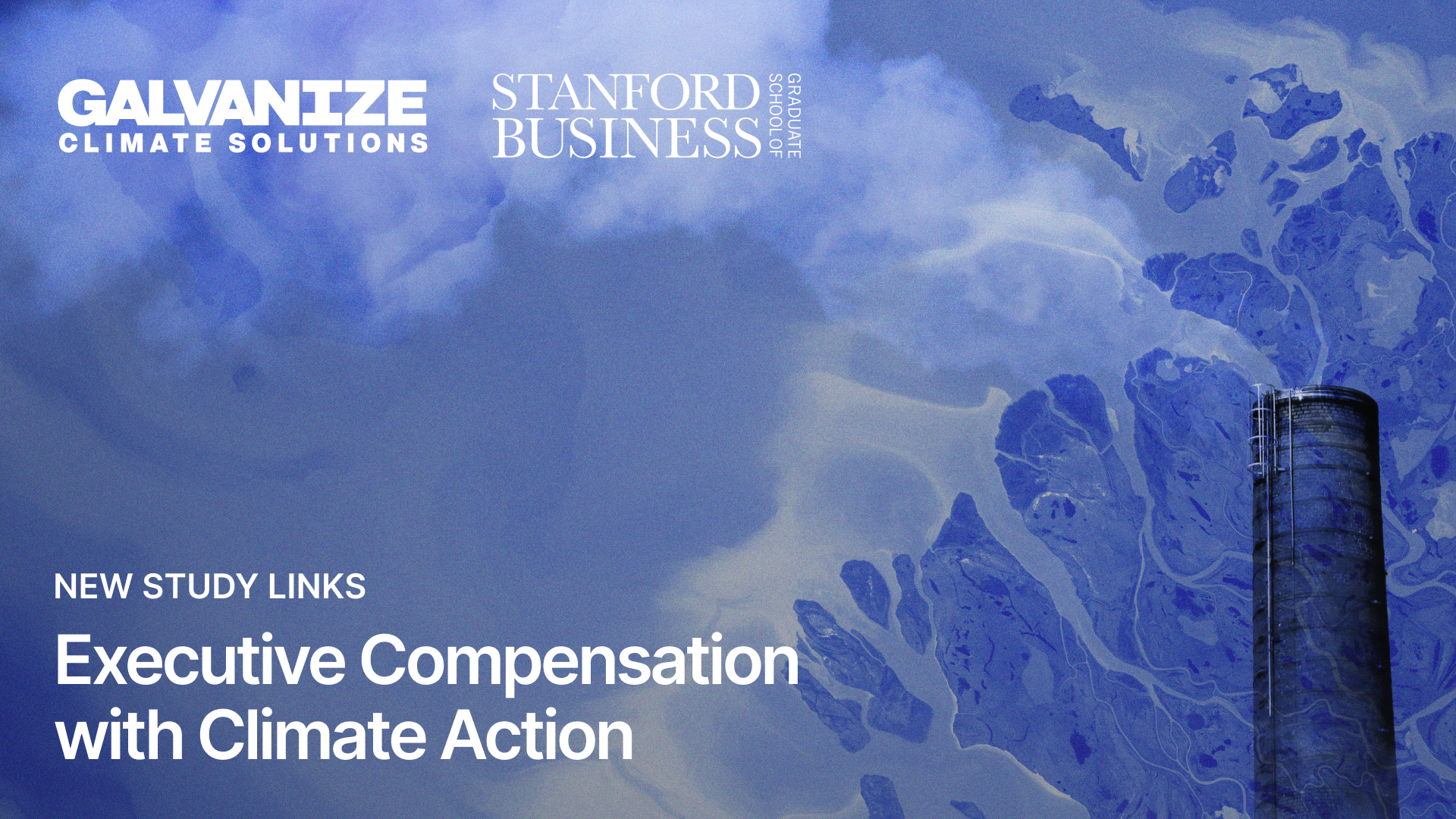
Aligning executive compensation with corporate climate commitments represents a powerful lever to ensure companies appropriately manage climate-related risks and meet publicly-stated targets. In this report, we explore the essential tenets of a credible and effective climate-aligned compensation scheme.
Given company commitments are typically rooted in 2030 and 2050 Net Zero goals consistent with the 2015 Paris Accords, shareholders have limited insight into what to expect in the intervening years and how likely a company will be expected to meet its commitments. The growing frequency of adverse climate events paired with recent climate disclosure legislation in the US and EU make it increasingly urgent that management teams and investors alike address climate risks, disclose emissions, and fulfill stated commitments.
Shareholders risk substantial financial harm if corporate stakeholders “kick the can down the road,” rather than establish credible plans to achieve publicly committed targets. Accordingly, executives should be materially rewarded for the operational, strategic and capital allocation choices their organizations make today that pave a path to deliver on those goals, and shareholders should have sufficient disclosures to ensure adherence and accountability.
This framework was developed by examining the experiences of executives at seven public and private companies and asset owners representing in aggregate over $4 trillion in market cap that have made meaningful climate commitments and have linked their goals to compensation. Through these interviews, we posit that there are five foundational pillars characterize a best-in-class corporate sustainability compensation scheme.
Read the report here to learn more.